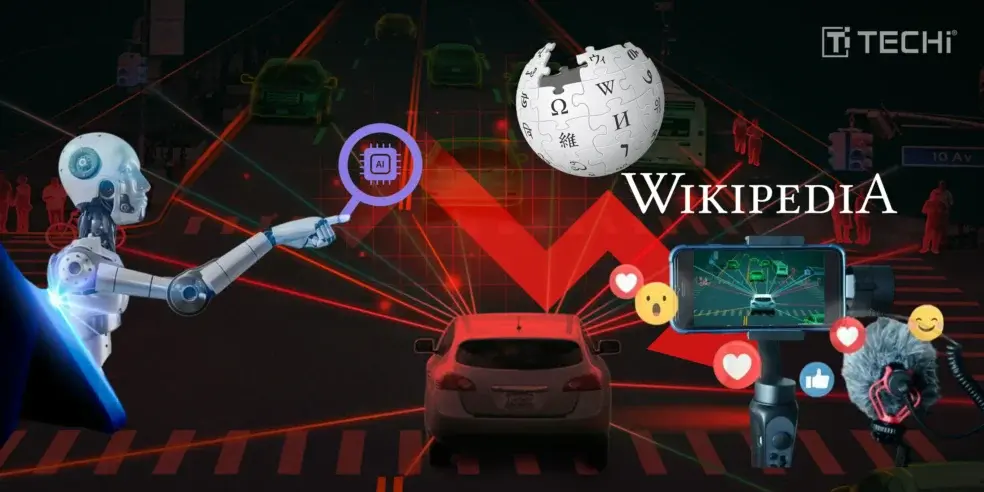
Users now prefer getting quick responses from AI search tools such as Google, Bing, or ChatGPT which results in a decrease in web traffic to Wikipedia. Search engines now feature quick answers from Wikipedia articles on their results pages, eliminating the need to access Wikipedia directly. Such trends threaten Wikipedia's user engagement, ability to obtain donations, and comprehensive knowledge source status. In the face of AI transformative shifts of online information on consumption, Wikipedia is trying to find a balance.
Background
Wikipedia is an online encyclopedia that is free and crowdsourced. It is used every day by millions of people around the world, and it is one of the most popular websites, and one of the first places people turn for reliable, well-cited information.
What’s Happening?
Wikipedia has seen a decline in users accessing its pages. People are now finding the information they want on Google, Bing, or ChatGPT without having to visit Wikipedia.
AI technologies include search summaries and knowledge panels that provide users with the answers they are looking for from Wikipedia articles without having to visit the actual articles.
As an illustration, Google and ChatGPT provide answers like “Alexander Graham Bell” to the question “Who invented the telephone?” without the user having to visit the Wikipedia article.
Why Is This a Problem for Wikipedia?
Loss of Traffic: Wikipedia is experiencing a decrease in user traffic because people feel no need to visit the site when they are provided with answers in a matter of seconds.Impact of Revenue and Donations: Donations from users who access the site keep the nonprofit organization that runs Wikipedia, the Wikimedia Foundation, afloat. If visitors to the site drop, so will donations, and that will affect the Foundation’s ability to keep improving the site, pay its personnel, and maintain its servers. Impact of Engagement and Visibility: Wikipedia benefits from users editing, exploring, and adding content to related articles. Engaging users who only come to the site for quick answers and who promptly exit hurts overall site activity.
What Does This Mean for the Digital Information Economy?
Changing User Behavior: Information access and consumption methods continue to evolve, with users more detached from the content of web pages and relying instead on instant AI answers.Content Ownership and Attribution: Content from Wikipedia is disproportionately used by AI and search engines, and many users are unaware of the site as the original source, which prompts questions of attribution.Challenges for Content Creators: Wikipedia and comparable sites may need to adapt how they organize and share information to stay visible and relevant.
How Is Wikipedia Responding?
Adapting to AI: Wikipedia is finding new methods to respond to an AI-driven environment, such as:
Improving their AI technology to offer site visitors advanced summaries.
Forming collaborations with AI systems to guarantee attribution.
Creating new content formats that foster deeper engagement.
Enhancing User Experience: Wikipedia may add new features that promote active site use and exploration, such as interactive content and improved navigation.
Key Takeaway
AI-generated summaries provide quicker answers, but they disrupt conventional traffic patterns on the web. Wikipedia, as the most prominent site providing free knowledge, is undergoing this disruption. Its challenge is to evolve in a way that incorporates AI technologies while ensuring users remain engaged with the full content.
Conclusion
AI-powered tools, particularly those offering quick information retrieval, are shifting online information-seeking behavior. Increasingly quick and easy answers AI tools offer is changing how users access information. In this context, Wikipedia is experiencing a drop in traffic and challenges related to sustainability, user engagement, and its funding model. This drop in engagement challenges Wikipedia in its goal of remaining a relevant digital resource. Wikipedia may need to find ways to work with AI tools to enhance user experience, promote deeper engagement with its content, and shift user information-seeking behavior. This situation underscores the need to reflect on the impact of AI of the future of knowledge sharing.


